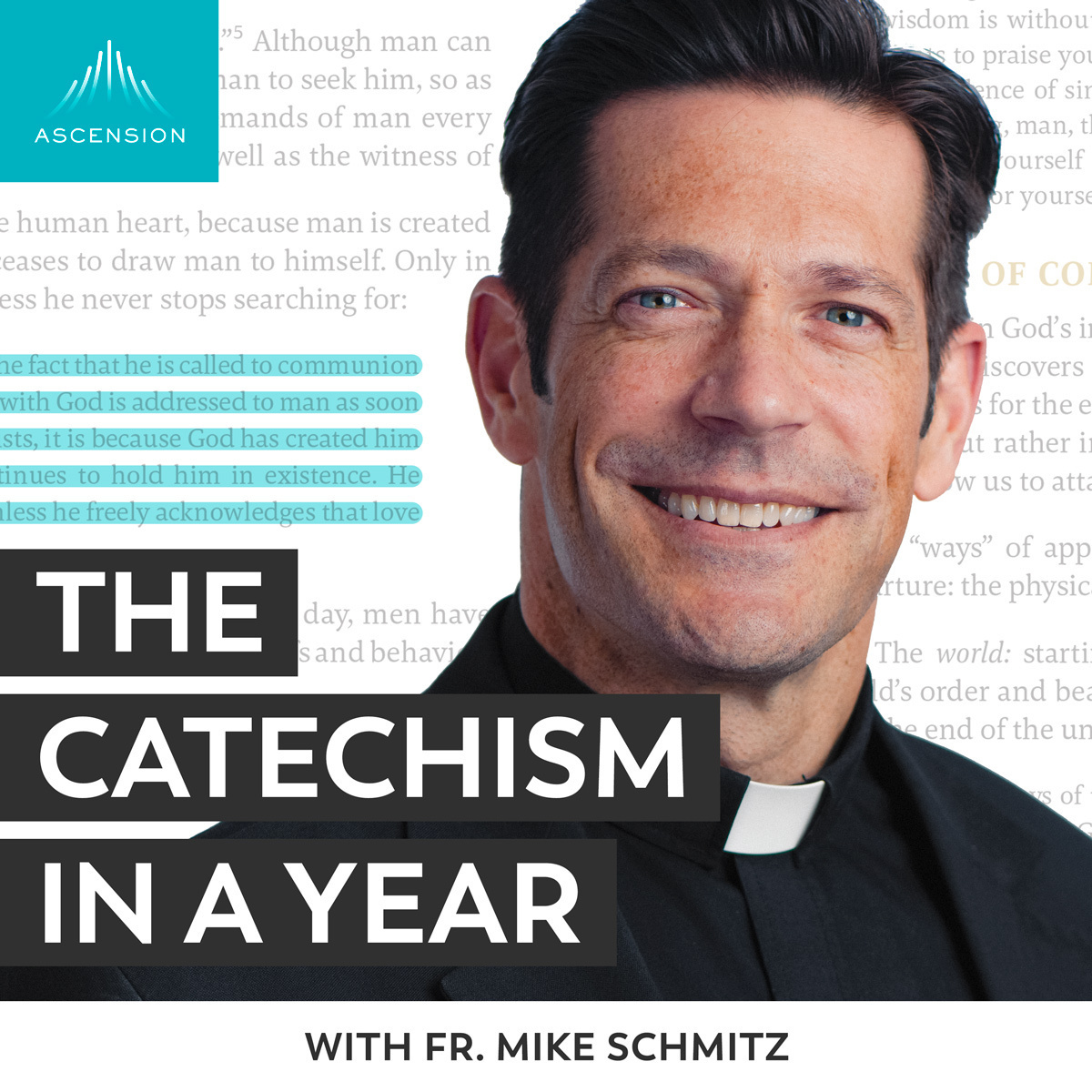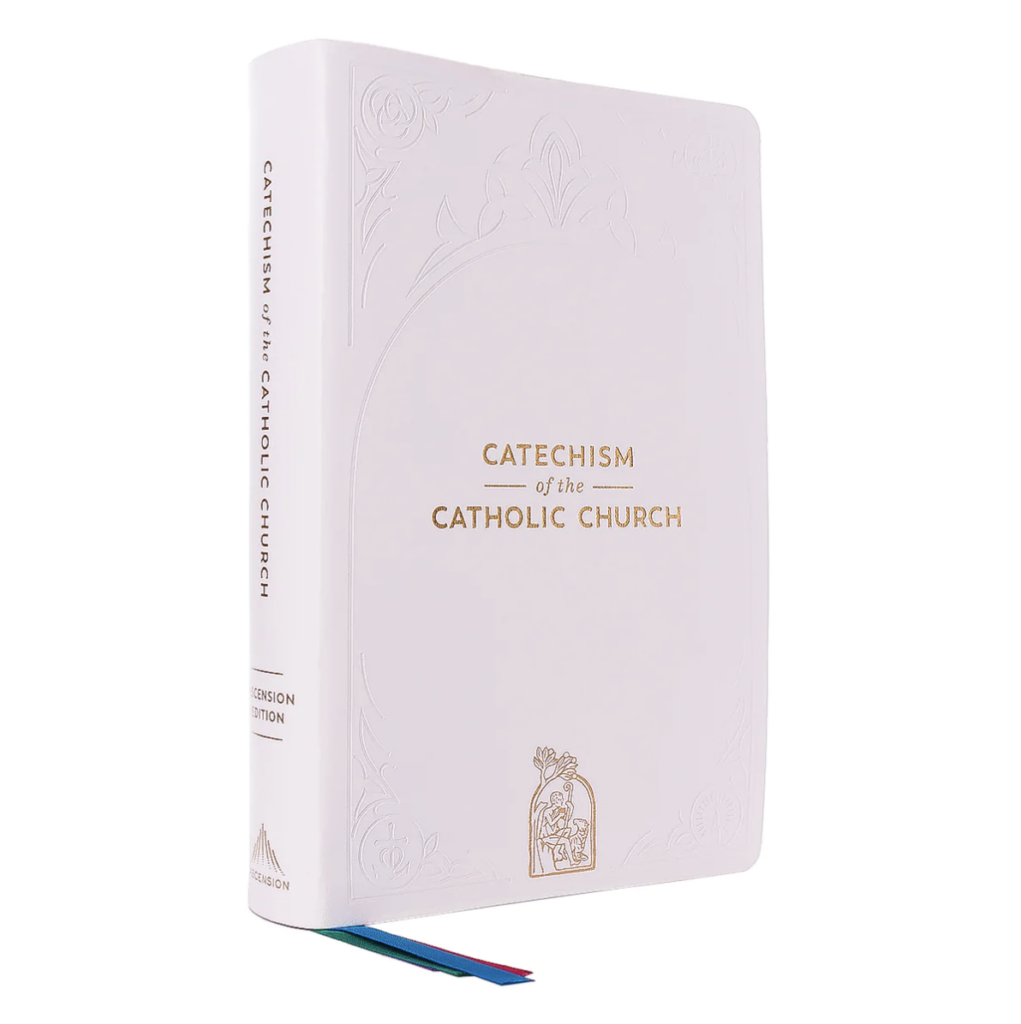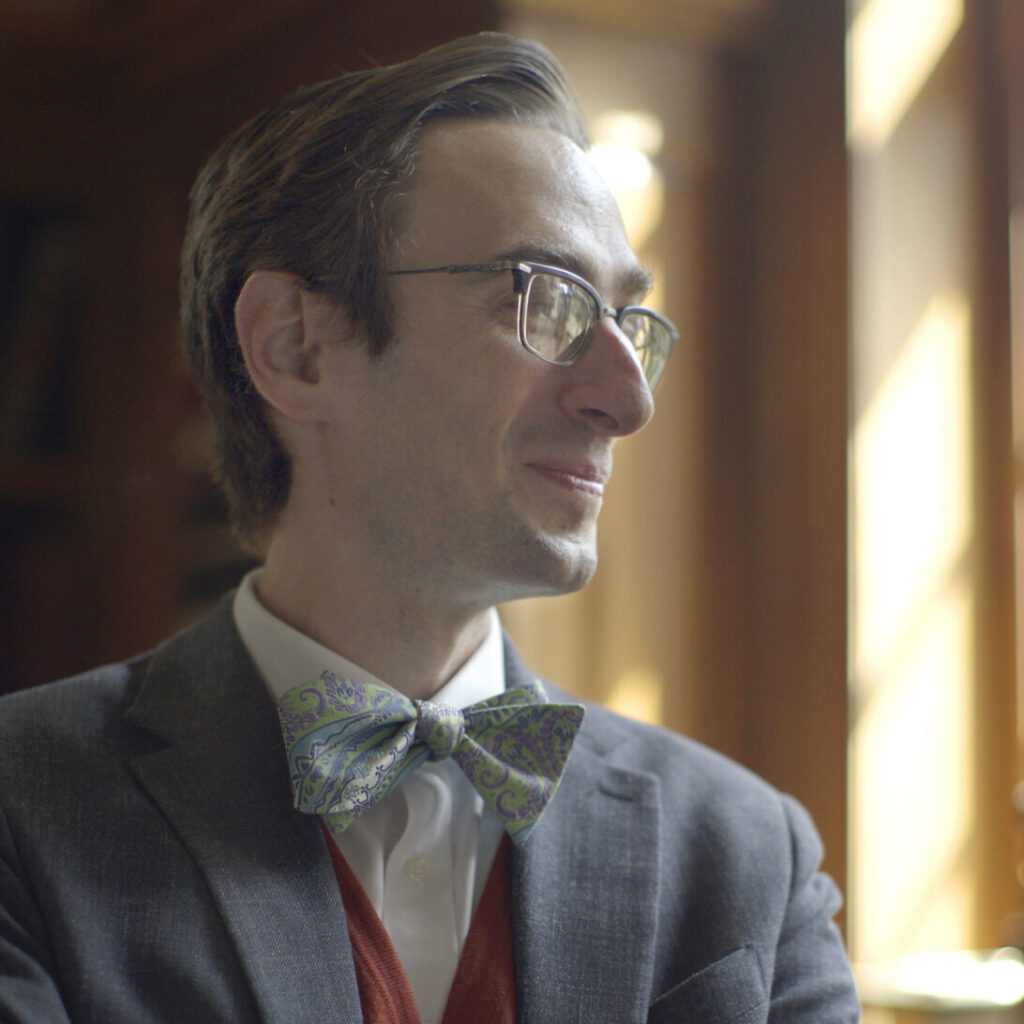This is the sixth part of a series that follows The Catechism in a Year podcast. Dr. Matthew Minerd journeys with us and presents a “travel guide” through the major themes of the Catechism of the Catholic Church.
Need to catch up? You can find the other parts of the series here: The Catechism: A Guide for the Christian Life, Divine Revelation, A God Who Reveals Himself, Creation and the Fall, and The Son.
We now turn our attention to the “final” Person of the Blessed Trinity—the Holy Spirit, who is called the “Counselor” (John 14:16) and enables us to call out “Abba, Father” (Romans 8:15).
From the first pages of Sacred Scripture, we read of the “Spirit of God” mysteriously “moving over the face of the waters” at the beginning of creation (Genesis 1:2). Like the later prophets, the patriarch Joseph was so filled with the “Spirit of God” that even Pharaoh was amazed at his ability to interpret dreams (see Genesis 41:38). It was prophesied that the coming age of the Messiah would be marked by inspiration coming from God’s Spirit:
“And it shall come to pass afterward, that I will pour out my spirit on all flesh. Your sons and your daughters shall prophesy, your old men shall dream dreams, and your young men shall see visions. Even upon the menservants and maidservants in those days, I will pour out my spirit.”
Joel 2:28–29
And the coming Messiah would himself be anointed by the Spirit:
“And the Spirit of the LORD shall rest upon him … The Spirit of the Lord GOD is upon me, because the LORD has anointed me to bring good tidings to the afflicted…”
Isaiah 11:2; 61:1
The Spirit Revealed
Indeed, the Holy Spirit was active throughout the Old Covenant in the lives of the people of Israel (see Acts 1:16). Numerous images were given to God’s Spirit in the Old Testament, which is variously depicted as an anointing from God, a purifying fire, a mysterious cloud making God present while also hiding him from mortal eyes, and the finger of God active in the world, among others. Nonetheless, during this period of salvation history, before the coming of the fullness of time in Christ, the distinct Personhood of the Holy Spirit remained hidden. The people’s understanding of the “Spirit of the Lord” remained vague. Perhaps this phrase referred to God himself, who is spirit (see John 4:24), or to God’s power active in the world, similar to his “Wisdom,” which is often described in personal terms (see Proverbs 8; Wisdom 6–9; Sirach 1:1–10, 4:11–19, 24:1–22; etc.). For humanity to know that the Holy Spirit is a distinct divine Person—indeed, that God is a Trinity—this needed to be revealed by Christ. Just as Christ revealed the Father and the Son, he also revealed the Person of the Holy Spirit, who is sent to those who are reborn through grace.

Listen to Fr. Mike’s new podcast, The Catechism in a Year!
If you have ever wanted to understand what it means to be Catholic and allow those truths to shape your life—this podcast is for you!
Baptized in the Holy Spirit
From her earliest days, the Church was aware of the divinity of the Holy Spirit, a fact particularly attested to by the sacrament of Baptism. On the authority of Jesus himself, all nations are to be baptized “in the name of the Father and of the Son and of the Holy Spirit” (Matthew 28:20). John the Baptist prophesies that the baptism of the one coming after him, the Messiah, is something new—a baptism “with the Holy Spirit” (Matthew 3:11). And in the Gospel of John, Jesus connects baptism and new birth in and through the Spirit:
“Unless one is born of water and the Spirit, he cannot enter the kingdom of God”
John 3:5; see 7:38–39
Filled with the Spirit
Though the entire Trinity was at work in salvation history from the very creation of the world, the powerful moment of the Holy Spirit’s coming took place in the incarnation of Christ, when the Spirit overshadowed Mary and the “Word became flesh” (see Luke 1:35). On Pentecost, fifty days after Jesus’ resurrection, the sending of the Spirit upon the disciples was so profound that one could say, in a sense, that the Spirit “had not yet been given” (John 7:39). Granted, after his resurrection, Jesus breathed upon his apostles, giving them the Holy Spirit so that they could forgive sins (see John 20:22). The full gift of the Spirit, however, was given at Pentecost, coming in a gusting wind as tongues of fire. Now, speaking in the various languages of those present in Jerusalem through the power of the Spirit, the apostles preached the Gospel:
“They were all filled with the Holy Spirit and spoke the word of God with boldness.”
Acts 5:31
The entire Acts of the Apostles is a testimony on behalf of the great truth of faith that the Holy Spirit is God.
Understanding the Holy Spirit
Nonetheless, the early Church carefully sought to explain this dogma more clearly, against those who denied what had been revealed concerning the Holy Spirit. Important works, written by such Saints as Athanasius (c. 296–373), Basil of Caesarea (330–379), Gregory of Nyssa (c. 335–c. 395), and Gregory of Nazianzus (c. 329–390) to defend the divinity of Christ also addressed the divine Personhood of the Spirit. These were important saints who defended the divinity and distinct personhood of both Christ and the Holy Spirit. The first two ecumenical councils, Nicaea I (325) and Constantinople I (381) defined this dogma, first proclaiming faith in the Holy Spirit and expanding the Creed to say:
“I believe in the Holy Spirit, the Lord, the giver of life, who proceeds from the Father; who with the Father and the Son is adored and glorified, who has spoken through the prophets.”
The Procession of the Holy Spirit
A final question needs to be faced regarding the three divine Persons: What does it mean to say, as Roman Catholics (and some Eastern Catholics) do in the Creed at Mass, that the Holy Spirit proceeds “from the Father and the Son”? Differences of language and emphasis led the Byzantine East and the Latin West down different paths concerning this question. Eventually, along with other issues, it occasioned a split between the Catholic Church and Eastern Orthodoxy in the eleventh century. Today, there is agreement that both understandings can live in peace together because they emphasize two aspects of the same mystery. The Eastern practice (which is also normative in the Byzantine Rite Eastern Catholic Churches) emphasizes that the Father is the first Person, from whom the other two divine Persons proceed—the Father sends the Spirit, who can rightly be called the “Spirit of the Father” (Matthew 10:20). The Western Catholic emphasis is on the distinctness of the Son and the Spirit and that the Spirit is the “Spirit of the Son” (Galatians 4:20). To unify these two points of emphasis, theologians have suggested the following approach—the Holy Spirit proceeds from the Father, through the Son.
The Importance of the Holy Spirit
All Catholic morality and prayer is rooted in the Church’s dogmatic teaching on the Trinity. This becomes obvious when we think about the role of the Spirit in making us new through baptism. Just as the Spirit came upon Jesus at his baptism (see Luke 4:1 and 4:18), so too all the baptized are to be led by the Spirit and to become God’s sons and daughters (see Romans 8:14). As we work out our salvation through grace, we are freed from slavery to our passions and from sin. This is what St. Paul means when he contrasts “the flesh” and “the spirit”:
For we ourselves were once foolish, disobedient, led astray, slaves to various passions and pleasures … but when the goodness and loving kindness of God our Savior appeared, he saved us, not because of deeds done by us in righteousness, but in virtue of his own mercy, by the washing of regeneration and renewal in the Holy Spirit, which he poured out upon us richly through Jesus Christ our Savior so that we might be justified by his grace and become heirs in hope of eternal life.
Titus 3:3–7
In other words, the Church’s teachings about Jesus Christ and the Holy Spirit are vital to our understanding that we have been “divinely refashioned” by a personal relationship with the Spirit, who remakes us in the image of Christ to be true sons and daughters of the Father. In fact, our new moral life bears witness to the fact that we abide in God and he in us (see 1 John 2–4). As Catholics, though, we see this personal relationship with Christ is not a “private” relationship. We are reborn in Christ as members of the Church, which is his Mystical Body, fashioned by our rebirth in the Spirit (see Romans 12:4–5; 1 Corinthians 12; Ephesians 5:24–33). Next, the Catechism turns its attention to the Church, and we come to a deeper understanding of the role the Holy Spirit plans in its life. We will return to the Spirit again when we discuss Catholic morality and spirituality.

Understand the Catholic Faith Like Never Before
This exclusive, specially designed Ascension edition of the Catechism clearly shows the ancient roots of the Faith and helps Catholics integrate the fullness of Catholic teaching into their daily lives.

Dr. Matthew Minerd is a Ruthenian Catholic, husband, and father, serving as a professor of philosophy and moral theology at the Byzantine Catholic Seminary of Saints Cyril and Methodius in Pittsburgh. His academic and popular writing has been published in the journals Nova et Vetera, The American Catholic Philosophical Quarterly, The Review of Metaphysics, Études Maritainiennes, Downside Review, and Homiletic and Pastoral Review. He has also served as a translator or editor for volumes published by The Catholic University of America Press, Emmaus Academic, and Cluny Media. He is the author of Made by God, Made for God: Catholic Morality Explained.






0 Comments